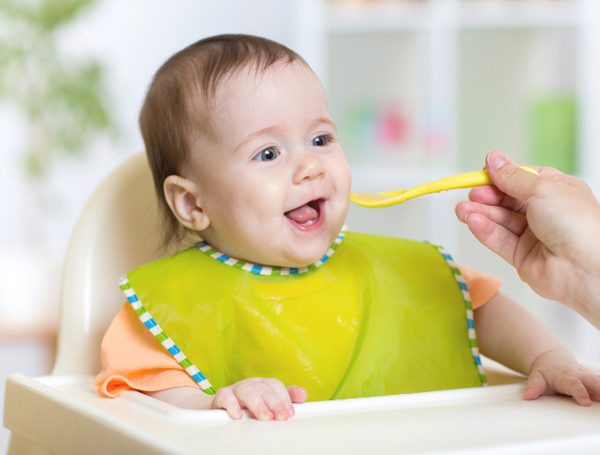
Did you know 50% of 0 to 3-month-old babies spit up at least once a day? And most of the babies will completely stop spitting up by 12 months. Babies spitting up is not so uncommon for mothers. If you are a mother, you probably have had wiped away the spit countless times. Some babies do it more than others and it can me due to formula milk or breast milk. It is more of a laundry issue than a medical one as spitting up simply adds to the mountain of laundry.
What exactly does spit up mean? It is just a mild throwing up or regurgitation of saliva, food or milk. All the reasons that babies spit up are nothing to worry about because it is not painful for your baby. If your baby is healthy and is gaining as much weigh as she should, then there is absolutely nothing to worry about. A healthy baby will gain six ounces every week and will wet diapers once every six hours.
Reasons for Spitting Up
Here are some of the reasons that your baby will spit up:
- Partially Developed Valve
Your baby has an immature digestive system right now. For food to go down into the stomach, it has to pass through the esophagus. In the stomach it mixes up with the stomach acid and then passes down into the intestine to be further digested. A valve exists between the stomach and esophagus that keeps the food from jumping up into the esophagus. Babies don’t have a completely developed valve which is why the food goes back into the food pipe and ends up in spitting. This is also called infant reflux.
- Small Stomach
Did you know your baby’s stomach is the size of a tiny marble at birth? So yes, the baby’s stomach is really small and it cannot hold a lot of food. It is no wonder you need to feed them after every few hours. After three days, it becomes the size of a ping pong ball and still cannot hold much. It is after about four months that the baby’s stomach is able to hold small quantity of milk. Filling them up too much with milk means the food will not go past the valve that is present between esophagus and stomach and result in spitting up. As your child grows, stomach grows and the valve also develops completely which means no more spitting up and no more mountains of laundry.
- Over feeding
Over feeding can occur when your child feeds too aggressively or when your breasts happen to be too full. As the baby has a small stomach, he is not able to hold a lot of milk. Gastrointestinal reflux causes it to return back from the stomach into the food pipe. This eventually results in spitting up.
- Swallowing Air:
Babies who have just started feeding are still in the process of learning how to drink milk. They don’t know at what speed they should be drinking. At times they drink too fast or take huge gulps of milk that they end up swallowing air with milk. The trapped air needs a route outwards and this results in spitting up of some liquid.
Ways to Reduce Spitting Up In Babies
You cannot prevent spitting up altogether but you can certainly minimize how often you baby spits up. Here are some simple ways you can try:
- Quit overfeeding
The rule of the thumb should be frequent but lesser feeding. Remember your baby’s stomach is too small. He can’t hold a lot of milk and ends up spitting up.
- Don’t feed when your baby is lying down
When you feed your baby while he is lying down, he might choke and spit up
- Check the size of nipple hole
If you are giving your baby a bottle, make sure the nipple hole isn’t too small. Your hungry angel might want more milk and suck harder. He might actually end up swallowing air. In case the hole is too big, he will drink so fast that he might drink too much. This can also cause spitting.
- Get the cold treated
Babies suffering from flu or cold tend to swallow the mucus and spit up more than usual. Treat the cold to prevent excessive spitting
- Hold the baby in upright position
You need to hold your baby upright while feeding and even after feeding. This lets the milk pass through without any obstruction.
- Burp your Baby
After feeding and even during feeding, take some time out to burp your baby. It helps to prevent air from trapping inside the baby. Babies get tired while feeding and take a break. You can burp him during this break. It helps to release air and prevent spitting.






